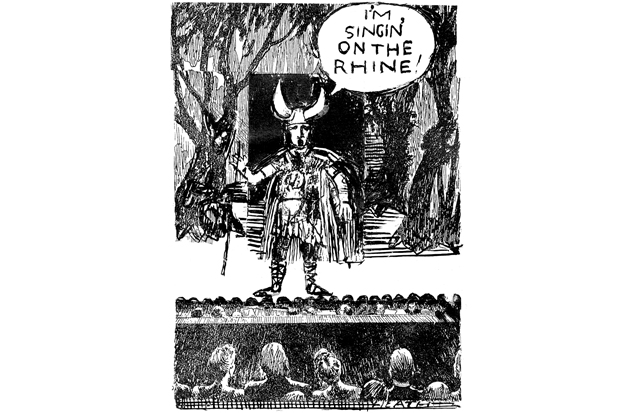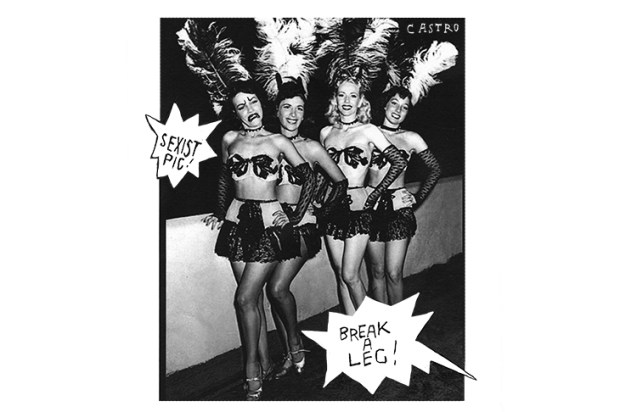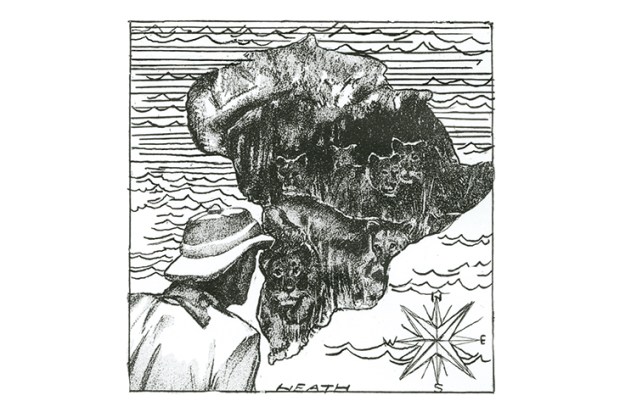It has been a strange week in Munich; a week of deceptively cool mornings, afternoons hot enough to fry eggs and thunderstorms at twilight that have turned streets into streams. A week of reflection, too, capped last Sunday by a service of remembrance in the cathedral, attended by Chancellor Merkel, to honour the nine young lives taken in the shooting at the shopping centre which sent a tremor through Freistaat Bayern, and through the nation.
One more tremor. It has been the summer of terror in Bavaria. Würzburg, Ansbach, Munich. But the Münchners have taken it well, in as much as one ever takes these things well. Along Maximilianstrasse, where the rich play; by the banks of the River Isar; in the lush acres of the Englischer Garten, life has gone on. A front-page headline saluted the city: ‘Head high, Munich.’
The mood has occasionally been uneasy. How could it not be? They threw a police cordon around the cathedral for the service of commemoration, and closed streets for the duration. Yet, given the number of people of Middle Eastern background wandering through those streets, many of them very rich indeed and making no effort to conceal it, the atmosphere has been benign.
Quartered in the most expensive hotels, their pockets groaning with dollars, some of these visitors are fairly unappetising. In particular the patronising behaviour of the menfolk towards the maids who wait at their tables, all gold watches and permanently engaged cellphones, is despicable. Many of these people loathe the West and all its doings. But they love the things they can buy here.
Attitudes will harden in time. And the revolt will be most apparent not in Saxon towns in the dead of winter but in the cafes and restaurants of Munich, when the serving wenches, fed up of being ignored by men who can’t be bothered to look at them, throw down their aprons and say ‘Genug!’
‘Waiting for the German verb,’ wrote Flann O’Brien, ‘is surely the ultimate thrill.’ It isn’t only language that separates peoples. Customs can also be baffling. This is a city of communal pleasures, where people eat and drink side by side, indoors and in the many cherishable beer gardens. Yet, when it comes to hey-lads-hey, everybody pays separately. Try to explain the British custom of ‘the round’ and you will get some funny looks.
Ah well, drinking in Munich brings its own rewards. The best beer brewed in this city of breweries is Augustiner but the best beer to be drunk here is probably, this being a matter of taste, brewed by the monks at the monastery in Andechs, eight miles south-west of Munich. The place to drink it is Andechser am Dom, a cricket pitch away from the high altar of the Frauenkirche, that twin-domed symbol of this most Catholic of cities.
Forget the Hofbräuhaus. It’s like Madame Tussauds with pilsner instead of mannequins. For an authentic Munich experience, for superb beer and the best black pudding you will ever scoff, head for the terraced tavern by the cathedral. ‘Delight for body and soul,’ they like to say of their beer. They’re right.
The Munich Opera Festival closed on the last day of July, as it always does, with Wagner’s serious comedy Die Meistersinger von Nürnberg, which received its baptism in this city in 1868. There aren’t many better places to enjoy opera than the Bavarian National Theatre, particularly if you’re sitting in the king’s box (swank swank), and musically it was very fine indeed. Kirill Petrenko, the music director, conducted a propulsive account of the score — at five minutes over four hours it was fully half an hour lighter than Ed Gardner’s interpretation for English National Opera last year — and Jonas Kaufmann, the local hero, showed again that he is a great singer as well as a star. But, heavens, the production! There is a club of German directors who seem to think Wagner’s intentions must be ‘subverted’ to make him ‘relevant’ to modern audiences, and this travesty was clearly David Bösch’s application for membership. A work famous for light, life and radiance was reduced to a grim masquerade, which rejoiced in its ugliness. Sixteenth-century Nuremberg was represented as East Berlin circa 1982; a bust of Wagner was smashed (yawn); and Beckmesser shot himself in the final bar as Hans Sachs, with a fag on, like a caretaker in his lunch hour, looked the other way.
Worst of all, the riot scene in the second act, which is a form of midsummer madness, was presented in the most graphic, stomach-turning way as a violent uprising by blackshirts-in-waiting. Did Herr Bösch not listen to the work before he got his grubby mitts on the libretto? We really must save Wagner from those Germans who are ashamed of his genius.
Sitting on a favourite bench in the Hofgarten, rereading Howards End, it was striking to be reminded of something Forster wrote in 1910. ‘The Germans are too thorough,’ Mrs Munt tells her nieces, the half-German Schlegel sisters, ‘and this is all very well sometimes, but at other times it does not do.’ Aldous Huxley was less coy. The Germans may dive deeper, he observed in one of his own novels, published two decades later, but they come up muddier.
Only a fool or a knave would say that now. This is still a land of poets and philosophers, of deep thoughts in dark forests, and long may it remain so, but the modern German dances to a different melody. The post-war transformation of Germany, one of the greatest achievements in human history, may be seen most clearly in Munich.
This is now the richest city in the richest state in the richest nation in Europe. But it isn’t the wealth that impresses so much as the gracious living, and the feeling that, however troubled things are at the moment, this is a place where the old adjoins the new more harmoniously than almost anywhere else. Head high, Munich.
The post Munich notebook appeared first on The Spectator.
Got something to add? Join the discussion and comment below.
Get 10 issues for just $10
Subscribe to The Spectator Australia today for the next 10 magazine issues, plus full online access, for just $10.
You might disagree with half of it, but you’ll enjoy reading all of it. Try your first month for free, then just $2 a week for the remainder of your first year.














Comments
Don't miss out
Join the conversation with other Spectator Australia readers. Subscribe to leave a comment.
SUBSCRIBEAlready a subscriber? Log in